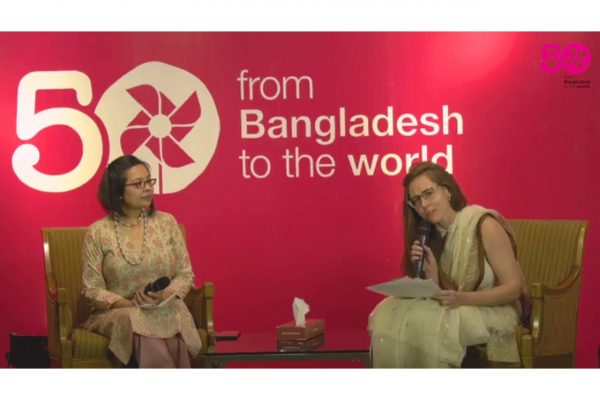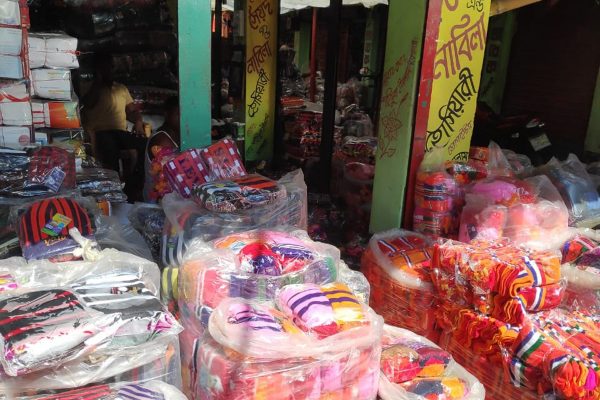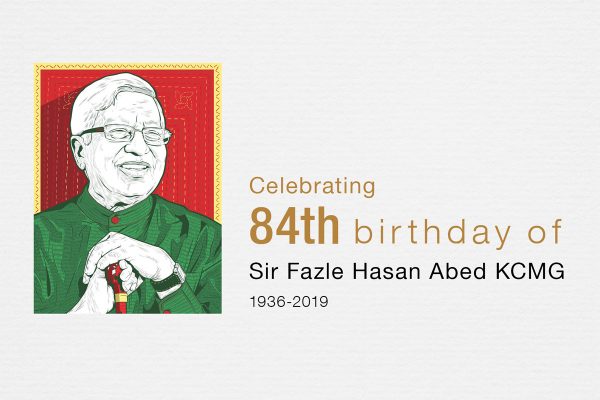March 1971: “I want to help young Bangladeshis with vision for the future”
Reading Time: 3 minutes
1971- Bangladesh embarked on a war that would bring about its liberation. Fast forward to March of the following year, BRAC emerged as a small relief operation faced with huge challenges- a broken economy and abject poverty.
1971- Bangladesh embarked on a war that would bring about its liberation. Fast forward to March of the following year, BRAC emerged as a small relief operation faced with huge challenges- a broken economy and abject poverty.
As we celebrate 44 years of BRAC and the long way Bangladesh has come since its liberation, we also take pause to reflect on the incredible events and the sheer faith and determination of the individuals who made this journey possible. This post is the second in a series of blogs looking back at the early days of Bangladesh and the birth of BRAC. Julian Francis has had a close association with Bangladesh since the war when he coordinated Oxfam’s refugee relief operations in India, covering over 50 refugee camps and 600,000 men, women and children. In this blog, he looks back at the times of crisis and the close friendship he shares with BRAC.
It was March, 1971. I had been working as an agricultural and animal husbandry volunteer in an Oxfam-funded Gandhian village development programme in Bihar. We heard of the unrest and violence in Dhaka and other places in Bangladesh through local Bengali friends in Gaya, the hottest place in India.
The Oxfam Eastern India office began to receive telegrams about thousands of refugees coming over at each of the many different border crossings following 26 March 1971, when Bangladesh declared war. I was asked to proceed to Calcutta along with other Bihar-based Oxfam colleagues. I ended up being the coordinator of a massive refugee relief operation assisting about 600,000 Bangladeshi women, men and children living in refugee camps along the border areas- from Tripura to Calcutta.
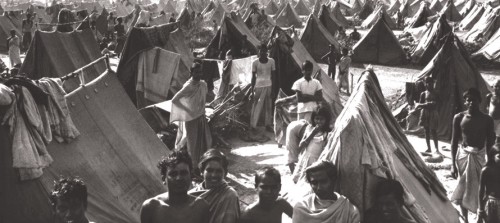 An Oxfam-supported refugee camp in India. Photo: Internet
An Oxfam-supported refugee camp in India. Photo: Internet
Oxfam became closely involved in relief and rehabilitation work when Bangladesh declared victory on 16 December 1971. The newly appointed and first country director of Oxfam Bangladesh, Raymond Cournoyer, who had earlier worked in East Pakistan from 1958 to 1965, had other ideas. “Give the relief supplies to CARITAS and Mother Teresa,” he insisted, “I want to support young Bangladeshis with vision for the future.”
I had travelled overland from Calcutta to Dhaka before Raymond arrived in Bangladesh, and had witnessed the devastation all around- burnt-out villages, destroyed culverts and bridges as well as sunken ferries and launches. Many seasoned aid officials were of the opinion that Bangladesh might not survive as a nation state if food supplies and transport communications were not organised very quickly.
Soon after my visit to Bangladesh, Sir Fazle Hasan Abed, who had been in contact with Oxfam headquearters in Oxford, came to my office in Park Circus, Calcutta. I handed over 300,000 rupees (GBP 23,000 in 1971) to him following instructions from Oxfam. He was going to use it to buy supplies not easily available at that time in Bangladesh. The first grant to BRAC for both rehabilitation and community development from Oxfam-UK and Oxfam-Canada totaled GBP 132,174. The aid was to be used for seed, fertilizer, boats, fishing equipment, tools, drugs, salaries, vehicles and 6,000 houses. This work was at Sulla, Sylhet- the site of BRAC’s first development efforts. Later on, further Oxfam grants would cover other areas of development work such as public health, family planning, functional literacy and working with women.
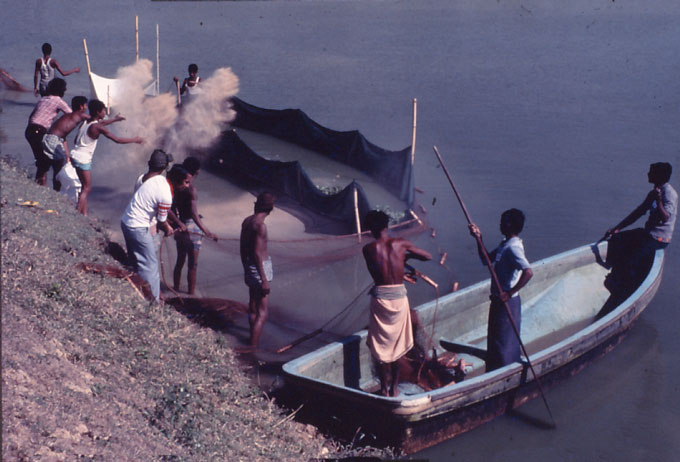 Training and supporting fishermen were one of BRAC’s first development efforts.
Training and supporting fishermen were one of BRAC’s first development efforts.
Since the late 1970s I have been either living and working in Bangladesh or visiting and have not missed a year since then. It has been rewarding to watch BRAC grow. When I was visiting the field work of BRAC in the 1980s, Abed bhai, as I know him, would always ask me, “What did you see? What do you think can be done better?” He was always seeking constructive criticism. Indeed BRAC’s own research and evaluation division has been key to maintaining BRAC’s high standards as well as learning valuable lessons when something failed.
In 2015, I was privileged to be asked to assist in the documentation of the initial preparation of a new phase of BRAC’s Strategic Partnership Agreement with DFID and DFAT of Australia. This allowed me to more accurately understand the vastness and depth of BRAC’s expertise in very many areas of sustainable development. It also showed me how significant BRAC’s work has contributed to the Bangladesh’s amazing progress since those very difficult days that I witnessed in early 1972.
Read the first post in this series– 40 years on: From famine to beating ultra poverty
Julian Francis was awarded the ‘Friends of Liberation War Honour’ by the Government of Bangladesh in 2012. He has worked in many poverty alleviation projects in Bangladesh where he continues to live and work as an independent consultant.


